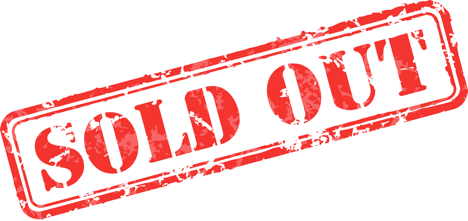 By Alex Bullock
By Alex Bullock
Many sports and music fans find it difficult or expensive to get tickets to see their favorite team or band play live. Consumers face the challenge of finding an available ticket, and the tickets they do find are often more than what they are willing to pay. It almost feels like the system is built to favor ticket sellers and resellers. Enter New York attorney general Eric Schneiderman.
Schneiderman recently released a 43-page report entitled Obstructed View: What’s blocking New Yorkers from Getting Tickets that criticizes the ticket sales practices of sports and entertainment companies as unfair and deceptive. The report primarily focuses on consumer access to tickets.
First, the majority of tickets for popular events are not reserved for the general public. For example, many concert venues withhold tickets from the general public, reserving a percentage of the tickets for industry insiders (other artists, venue employees, sponsors, etc.), thus diluting the number of tickets available for purchase by fans.
Then, ticket-purchasing bots and other industry brokers purchase many of the available tickets. A ticket bot is a software program that automates ticket-buying, performing hundreds or thousands of transactions simultaneously. According to the report, the brokers using ticket bots range from individuals (typically computer programmers) who take advantage of bots to earn a supplementary income, to a large-scale bot operator who, in 2013, sold nearly $31 million worth of tickets on StubHub. Ticket bots monitor ticket sales websites and automate the ticket reservation and purchase process. As a result, when tickets first go on sale to the public, ticket bots crowd out human purchasers. The tickets purchased by bots are then offered to the public in the resale market on websites like StubHub and TicketsNow, typically at marked up prices (the report also criticizes the regular practice of ticket resellers charging high fees and service charges for unclear purposes, making it more expensive for consumers to purchase tickets on the resale market that they are artificially forced into). Ticket vendors’ policies intended to ward off bots (e.g., a CAPTCHA program) are proving ineffective at keeping bots out of the marketplace.
The report also criticizes the use of price floors, which prevent ticket resellers from selling tickets below a certain price. The report illustrates the “NFL Ticket Exchange” (operated by Ticketmaster), which is billed as the official resale site and the only “safe” place to buy secondary NFL tickets. The report notes that, “on NFL Ticket Exchange, the seller is prohibited [by price controls on the online marketplace] from setting a price below a certain level…Consequently, if a season ticket holder wants to sell his or her tickets for a lower price than he or she paid, he or she may be unable to do so.” Additionally, in his analysis of Schneiderman’s report, legal analyst Michael McCann of Sports Illustrated pointed to potential antitrust concerns for the NFL in its ticket sales practices.
Schneiderman’s report ends with a call to action for the New York legislature to address these consumer protection issues. This report, combined with other consumer trends, point to changes for how consumers get tickets to their favorite entertainment events.
Notably, one entertainer has made an effort to avoid these ticket resale issues entirely by offering tickets to his shows on his own website. For his 2012 tour, comedian Louis C.K. offered tickets exclusively through his website to lower ticket prices and make them easier to buy. He noted that the markup by ticket resellers and high service charges made his shows less affordable for his fans.
Other new ticket sales websites like SeatGeek allow consumers to compare prices across various ticket resellers and determine whether they are getting a good deal.
Additionally, NFL teams should be wary of the effect of the improved home viewing experience on ticket sales. Reasonably priced, high quality televisions make it less appealing to attend a sporting event in person. Teams are trying to find a way to bring added value to the in-person experience (for example, a smartphone app that allows you to order food and drinks to be delivered at your seat; or the chance to take in a Jacksonville Jaguars game poolside).
Whether the pressure comes from lawmaking bodies, consumer behavior, or a combination of the two, it will be interesting to see whether added pressure on entertainment entities who rely on ticket sales for substantial revenues (sports teams, concert venues, etc.) will force them to build a more consumer-friendly and fair market for tickets.
Image source: enterteasement.com.